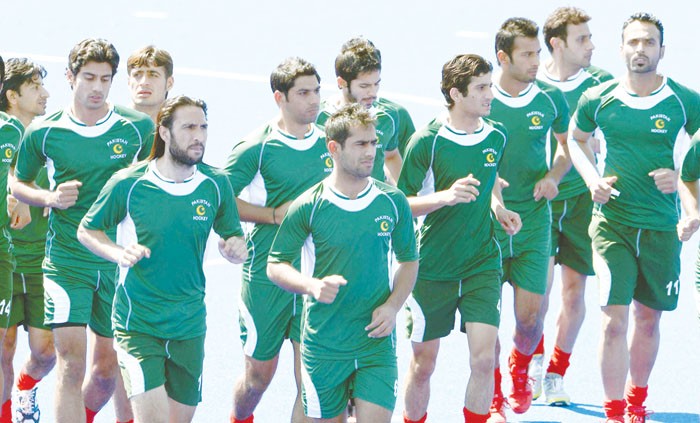

Regarded as the pinnacle of all sporting events, the Olympic Games provide a viscously competitive platform for countries to battle it out and earn the revered medals in their respective sports. Unfortunately, ever since their first-ever participation in the London Games in 1948, Pakistan have been struggling to bring many laurels home. In 67 years, the country of approximately 191 million can only boast a mantle of 10 medals, out of which eight were won in hockey alone.
It can be said without dispute that hockey has been the saving grace of Pakistan’s sporting prowess. Unfortunately even that superiority was short lived as Pakistan could not even continue to assert dominance in Hockey; the team fizzled out of the Beijing 2008 and London 2012 Olympics, in which they had to battle it out for 7th and 8th position respectively.
However, considering the team’s recent performances, or lack thereof, securing 8th position would seem like a triumph today.
Pakistan’s total failure in these grand events can be attributed to a combination of things. The most obvious cause is the government’s utter disregard for sports in general.
Although numerous sporting federations and committees exist, these bodies are inefficient, underfunded, understaffed and have a general lack of motivation to progress. Once again, The Pakistan Hockey Federation is a glowing example of how Pakistan’s failure is intertwined with poor management.
A general lack of accountability has always been Pakistan’s grave flaw and despite being dragged in dirt, the PHF has not learnt its lesson. Giving Khalid Khokar control of the PHF shows complete lack of foresight and strong presence of corruption, which has rooted itself deeply in the system. His critics argue that he secure this position due to nepotism.
Beyond the crippling culture of corruption, Pakistan continues to be a negligible force in the athletic world because athletics and sports in general have been given little importance in schools. Competitive school studies occupy a majority of the students’ time therefore sports are extremely neglected. Schools do not have the proper infrastructure to teach the sports and the coaches themselves do not possess the adequate knowledge and training to impart upon the students. For most schools physical education lessons provide students with an apt opportunity to kick dirt and waste time.
At most schools, sports days are considered the most revered and eagerly anticipated events on the school calendar, but despite this hype the schools are unable to generate world-class athletes. Pakistan has been blessed with immense talent and potential with regards to sports, but sports is just another resource that Pakistan has left untapped. Barely any presence in these international sporting events such as the Olympics has caused an exponential decrease in the following of these events in Pakistan. The vast youth of today has lost interest in such events and athletics is a field most youngsters would like to pursue only till their college days.
The situation gets graver when it comes to women, more specifically sportswomen. Unfortunately women are tied down by cultural restraints. Conservative Pakistani families look at these events in a negative light; participation in these games is associated with shamelessness or western influence. Women Swimming Championships, for example, are not only unrecognized but also looked down upon and vehemently opposed. A Pakistani woman wearing the Olympics’ swimming costume would be cast as a sinner flaunting her body, irrespective of whether she won or lost.
The 2012 Olympic games were a turning point in history, as a Saudi Arabian Sarah Attar was the first female track athlete to compete from her country. While her participation in the games was a symbolic day for women, it also served to highlight the problem faced by women in countries like Saudi Arabia and similarly, Pakistan. Sarah did manage to complete the race but it was a mammoth, 45 seconds behind the winner. While other competitors wore light weight and appropriate running attire (that clung to their bodies) Sarah had to compete in a baggy green shirt and a hijab, putting her at a loss.
Conclusively, over to Pakistan, sports needs desperate attention and those in positions of authority need to rethink their responsibilities. Will Pakistan’s participation in the Olympic Games be restricted to their participation via a wild card entry, or will Pakistan tap into its potential and produce winners in the future?